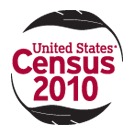The Special Committee,
Bearing in mind the Declaration on the Granting of Independence to Colonial Countries and Peoples, contained in General Assembly resolution 1514 (XV) of 14 December 1960, as well as the resolutions and decisions of the Special Committee concerning Puerto Rico,
Considering that the period 1990-2000 was proclaimed by the General Assembly, in its resolution 43/47 of 22 November 1988, as the International Decade for the Eradication of Colonialism, and that by resolution 55/146 of 8 December 2000, the General Assembly declared the period 2001-2010 the Second International Decade for the Eradication of Colonialism,
Bearing in mind the 28 resolutions and decisions adopted by the Special Committee on the question of Puerto Rico, contained in the reports of the Special Committee to the General Assembly, in particular those adopted without a vote in recent years,
Recalling that 25 July 2010 marks the one hundred and twelfth anniversary of the intervention in Puerto Rico by the United States of America,
Noting with concern that despite the diverse initiatives taken by the political representatives of Puerto Rico and the United States in recent years, the process of decolonization of Puerto Rico, in compliance with General Assembly resolution 1514 (XV) and the resolutions and decisions of the Special Committee on Puerto Rico, has not yet been set in motion,
Stressing the urgent need for the United States to lay the groundwork for the full implementation of General Assembly resolution 1514 (XV) and the resolutions and decisions of the Special Committee concerning Puerto Rico,
Noting that the inter-agency Task Force on Puerto Rico’s Status designated by the President of the United States, which submitted its second report in December 2007, reaffirmed that Puerto Rico is a territory subject to United States congressional authority and that initiatives concerning Puerto Rico’s status have been subsequently presented to the Congress of the United States,
Also noting the “Panama Proclamation”, adopted by the Latin American and Caribbean Congress for the Independence of Puerto Rico, which was held in Panama from 17 to 19 November 2006 and attended by 33 political parties from 22 countries of the region, the conclusions of which were reaffirmed in Mexico City on 29 March 2008 at the meeting of the Standing Committee for Puerto Rican Independence; and the declaration of the Socialist International Committee for Latin America and the Caribbean, adopted at its meeting in Buenos Aires in April 2010, supporting a review of the case of Puerto Rico by the United Nations General Assembly,
Further noting the debate in Puerto Rico on the search for a procedure that would make it possible to launch the process of decolonization of Puerto Rico, and aware of the principle that any initiative for the solution of the political status of Puerto Rico should originate from the people of Puerto Rico,
Aware that Vieques Island, Puerto Rico, was used for over 60 years by the United States Marines to carry out military exercises, with negative consequences for the health of the population, the environment and the economic and social development of that Puerto Rican municipality,
Noting the consensus existing among the people and the Government of Puerto Rico on the necessity of ensuring the clean-up, decontamination and return to the people of Puerto Rico of all the territory previously used for military exercises and installations, and of using them for the social and economic development of Puerto Rico,
Also noting the complaints made by the inhabitants of Vieques Island regarding the continued bombing and the use of open burning for clean-up, which exacerbate the existing health problems and pollution and endanger civilian lives,
Further noting the consensus among the people of Puerto Rico in favour of the release of the Puerto Rican political prisoners, some of whom have been serving sentences in United States prisons for more than 29 years for cases related to the struggle for Puerto Rico’s independence,
Noting the concern of the people of Puerto Rico regarding violent actions, including repression and intimidation, against Puerto Rican independence fighters, including those that have recently come to light through documents declassified by federal agencies of the United States,
Also noting that in the final document of the Fifteenth Summit of the Non Aligned Movement, held in Sharm el-Sheikh, Egypt, from 11 to 16 July 2009, and at other meetings of the Movement, the right of the people of Puerto Rico to self-determination and independence is reaffirmed on the basis of General Assembly resolution 1514 (XV); the Government of the United States is urged to assume its responsibility to expedite a process that will allow the Puerto Rican people to fully exercise their inalienable right to self-determination and independence; the Government of the United States is urged to return the territory and occupied installations on Vieques Island and at the Roosevelt Roads Naval Station to the Puerto Rican people, who constitute a Latin American and Caribbean nation; and the General Assembly is urged to actively consider the question of Puerto Rico in all its aspects,
Having heard statements and testimonies representative of various viewpoints among the people of Puerto Rico and their social institutions,
Having considered the report of the Rapporteur of the Special Committee on the implementation of the resolutions concerning Puerto Rico,
1.
Reaffirms the inalienable right of the people of Puerto Rico to self-determination and independence in conformity with General Assembly resolution 1514 (XV) and the applicability of the fundamental principles of that resolution to the question of Puerto Rico;
2.
Reiterates that the Puerto Rican people constitute a Latin American and Caribbean nation that has its own unequivocal national identity;
3.
Calls upon the Government of the United States of America to assume its responsibility to expedite a process that will allow the Puerto Rican people fully to exercise their inalienable right to self-determination and independence, in accordance and in full compliance with General Assembly resolution 1514 (XV) and the resolutions and decisions of the Special Committee concerning Puerto Rico;
4.
Notes the broad support of eminent persons, governments and political forces in Latin America and the Caribbean for the independence of Puerto Rico;
5.
Again notes the debate in Puerto Rico on the implementation of a mechanism that would ensure the full participation of representatives of all viewpoints prevailing in Puerto Rico, including a constitutional assembly on status with a basis in the decolonization alternatives recognized in international law, aware of the principle that any initiative for the solution of the political status of Puerto Rico should originate from the people of Puerto Rico;
6.
Expresses serious concern regarding actions carried out against Puerto Rican independence fighters, and encourages the investigation of those actions with the necessary rigour and with the cooperation of the relevant authorities;
7.
Requests the General Assembly to consider the question of Puerto Rico comprehensively in all its aspects;
8.
Urges the Government of the United States, in line with the need to guarantee the Puerto Rican people their legitimate right to self-determination and the protection of their human rights, to complete the return of occupied land and installations on Vieques Island and in Ceiba to the people of Puerto Rico; respect fundamental human rights, such as the right to health and economic development; and expedite and cover the costs of the process of cleaning up and decontaminating the impact areas previously used in military exercises through means that do not continue to aggravate the serious consequences of its military activity for the health of the inhabitants of Vieques Island and the environment;
9.
Requests the President of the United States of America to release Oscar López Rivera and Carlos Alberto Torres, who have been serving sentences in United States prisons for over 28 years, and Avelino González Claudio, all of whom are Puerto Rican political prisoners serving sentences in United States prisons for cases relating to the struggle for the independence of Puerto Rico;
10.
Notes with satisfaction the report prepared by the Rapporteur of the Special Committee,1 in compliance with its resolution of 9 June 2008;
11.
Requests the Rapporteur to report to the Special Committee in 2010 on the implementation of the present resolution;
12.
Decides to keep the question of Puerto Rico under continuous review.
Source: United Nations












